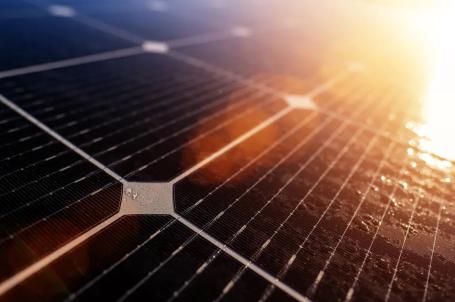Workshop on Financing the Green Energy Transition in Southeast Asia Concluded in Beijing
On June 26, 2024, the Belt and Road Initiative International Green Development Coalition (BRIGC), with support from the World Resources Institute (WRI), hosted the conference on Financing the Green Energy Transition in Southeast Asia in Beijing. Representatives from financial institutions including Export-Import Bank of China (EXIM China), China Development Bank (CDB), China Export & Credit Insurance Corporation (Sinosure), HSBC, Bank of China, and Ping An Bank, industry associations including the China Electricity Council, and research institutes including the Institute for Essential Services Reform (IESR), Griffith University and National University of Singapore, together with philanthropies such as the Children's Investment Fund Foundation (CIFF), gathered for this event. Cui Dandan, Secretary General of BRIGC, and Liu Qiang, Deputy Chief Representative of the CIFF China, attended the conference and delivered the opening remarks. The conference was moderated by Zhang Jianyu, Chief Development Officer of BRIGC, and Miao Hong, Director of the Sustainable Transition Center at WRI China.
Cui Dandan stated that China has become a leader in renewable energy and has been actively engaged in clean energy cooperation through the construction of the green BRI with partnering developing countries. Throughout this process, the BRIGC has leveraged its strengths and played an active role. In particular, since 2020, the BRIGC has collaborated with institutions such as WRI on research, including the series of studies on the "Green Development Guidance for BRI Projects", which provided support for China's decisions to stop building coal power plant overseas and strengthen ecological and environmental management for overseas projects. It is essential to further align the low-carbon energy transition needs of Southeast Asian countries with collaboration in BRI. This can be achieved through enhancing the capacity of financial institutions, including banks, to support green projects, fostering partnerships for green development investment and financing, and mobilizing more funds to support the green transition in developing countries.
Liu Qiang from CIFF pointed out that promoting the green and low-carbon transformation of energy systems requires collaborative efforts from the international community. Developing countries, in particular, still face significant gaps in funding, technology, and capacity. To address this, he proposed strengthening research and cooperation in three areas: exploring approaches and mechanisms for the low-carbon transformation of traditional energy, providing systematic energy transition solutions combining renewable energy development with the transformation of energy-intensive industries, and establishing regionally acknowledged rules for mutually beneficial outcomes. He also suggested promoting innovative financial instruments such as blended finance to mobilize public and private capital to support the implementation of transformation projects. Additionally, he emphasized the importance of bilateral and multilateral information exchange, sharing experiences, and deepening cooperation.
Financing for the low carbon transition of conventional energy
During the conference, Wang Ye, Research Associate at the Finance Center of the WRI, Zhang Huifeng, Managing Director and Head of Corporate Sustainability for Asia Pacific at HSBC, and Kanchuya Sukdheva, Senior Advisor and Head of Business Development at Climate Smart Ventures (CSV), shared insights on the current status and trends of the green and low-carbon transformation in Southeast Asia, financial institutions' coal exit practices, and suggested action frameworks for energy transition. By 2023, 70% of the top 100 global commercial banks have publicly released coal-related policies, with commitments mainly focused on phasing out coal mining and coal-fired power generation. There has been a trend towards extending these commitments to coal-related industries and infrastructure. The energy transition in Southeast Asia is crucial for achieving the goals of the Paris Agreement. However, the socioeconomic conditions in ASEAN present challenges to the region's transition efforts, as the energy supply is still heavily reliant on fossil fuels, and there is a significant proportion of young coal fleets. Asia's energy transformation is at a critical turning point, and mobilizing blended finance solutions that attract commercial funds will help accelerate coal phase-out efforts and drive comprehensive transformation of the entire energy system.
Accelerating renewable energy to boost development
Deon Arinaldo, Program Manager of Energy Transformation at the IESR, Sun Jiakai, Senior Manager of the Customer Service Management Department at the Export-Import Bank of China, and Liu Yan, Research Associate at the Green Finance Division of Appraisal Department of the Sinosure joined the panel and discussed policy, financial and institutional gaps, and recent developments in supporting carbon transition at the country level. Taking Indonesia as an example, an investment of $30 to $40 billion per year is required in the renewable energy and power sectors to achieve net-zero emissions targets. China's experience in policy guidance, technological innovation, and market promotion in renewable energy can serve as a reference for Indonesia and other Southeast Asian countries. Sinosure and EXIM China have continuously optimized their export credit and insurance support policies for the green industry, providing a comprehensive financial toolkit to support Chinese enterprises in enhancing their competitiveness in the international market, promoting the "going global" of new energy enterprises, assisting host countries in transforming their green resource advantages into drivers of sustainable development, guiding private sector participation in sustainable investment, effectively expanding green financing channels, and facilitating the development of overseas renewable energy projects.
Participants acknowledged that ASEAN is one of China's largest trading partners and a primary destination for China's overseas power investments. It is shared that Chinese financial institutions and energy enterprises play a crucial role in the successful energy transition in Southeast Asia. As the world's largest investor in renewable energy, China has a solid foundation to further explore investment opportunities and support the region's energy transition. The cooperation potential between China and ASEAN countries in policy, finance, and technology in the renewable energy sector is vast, and would have a chance to provide valuable reference for global energy transition and climate efforts.

Pixabay